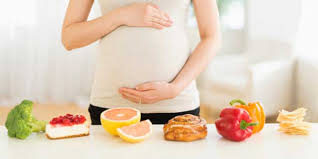Gestation is a period of great physiological stress for woman as she is nurturing a growing fetus in her body. Changes occur in mother’s body which influences the need for nutrients & the efficacy with which the mother’s body uses the nutrients.
The nutrient needs will increases to develop maternal organs such as uterus, placenta and breast tissues and to build up body reserves to be utilized at the time of delivery and lactation. There is no significant increase in the size of fetus thus only qualitative improvement in nutrients intake is required during 1st trimester. Whereas nutrient intake will increase in second & third trimester of gestation thus need for almost all the nutrients required.
Nutritional needs during gestation:
Protein and iron supplementation are required for
- Growth of fetus
- Development of placenta
- Enlargement of maternal tissues
- Formation of amniotic fluid
- Increased maternal blood volume
- Compensate blood loss during gestation
- Building the iron stores in Fetal liver
 Omega-3 fatty acid like Docosahexaenoic acid (DHA) supplementation during gestation is essential for brain development and prevents preterm births. It is required for fetal visual development and reduces the incidence of heart diseases & heart disease related deaths in infants.
Omega-3 fatty acid like Docosahexaenoic acid (DHA) supplementation during gestation is essential for brain development and prevents preterm births. It is required for fetal visual development and reduces the incidence of heart diseases & heart disease related deaths in infants.
Calcium is also required for the growth and development of bones as well as teeth of the fetus. Calcium intake decreases the risk of hypertension, pre-eclampsia in mothers and low birth weights and chronic hypertension in newborns. If calcium intake is inadequate during gestation then calcium is mobilized from maternal bones to meet the fetal calcium needs and this demineralization of maternal bones leading to easy fractures.
Minerals also required for gestation are folic acid, zinc, iodine. Vitamins required are A, D, K, C, B6 and B1. During gestation, avoid caffeine, alcohol, smoking and drugs.
Nutrient deficiency can lead to birth defects, fetal growth, preterm birth and lower levels of nutrients during lactation.
